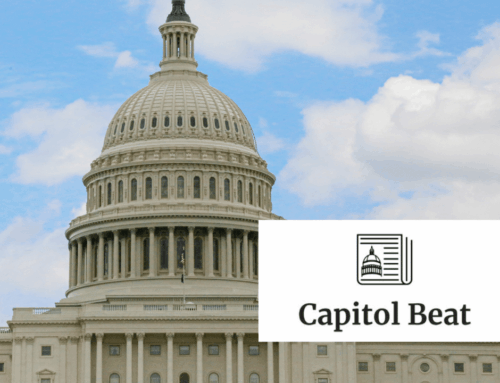With the August recess looming, Congress is quickly running out of time to knock a few items off its to-do list. But when it comes to dealing with the September expiration of the Export-Import Bank, the best path forward is to do what this Congress has shown it can do best—nothing. To protect taxpayers Congress needs to let the Ex-Im expire.
The Export-Import bank is like your appendix – if it ever had a legitimate use it has long disappeared. In 1934, the bank was established to support U.S. jobs by promoting the exporting and importing of goods and services, loaning money to foreign buyers of U.S. products and providing loan guarantees and insurance-like products for U.S. exporters. It was purportedly filling a void by providing financing for worthy ventures that couldn’t get private backing. In reality it became a favor-factory for politically well-connected corporations trolling for corporate welfare.
The Ex-Im is a taxpayer disaster waiting to happen. The financial commitments the Ex-Im makes are backed by the full faith and credit of the U.S. Treasury, meaning in the case of default, it’s taxpayers who are on the hook. Currently the Ex-Im has nearly $114 billion in liabilities. It also has a poor track record, losing more than $5 billion in the 1980s—back when billions meant something. Both the Government Accountability Office and the Inspector General have repeatedly criticized it for shoddy management, bad accounting, and faulty risk analysis, including CBO’s determination last month that using realistic accounting methods, the bank’s claimed “profits” for taxpayers will actually turn into at least $2 billion of losses. And that’s assuming there are no major shocks to the world economy, especially in airlines or oil and gas development sectors where the Ex-Im is most heavily exposed.
While there is plenty of potential loss for taxpayers, there’s practically no gain. Even using their own methodology and numbers, which have been roundly criticized, Ex-Im backed projects in 2013 accounted for a mere 2% of the $2.2 trillion in U.S. exports and less than 2% of export-dependent jobs. That doesn’t take into account the jobs it causes to be lost when private capital follows government subsidies to less efficient companies, jobs cut at unsubsidized competitors who lose sales, or companies that must pay more to get loans. And on top of this, there’s no indication the bank really has much of an effect. In addition to 98% of exports occurring without its assistance, last year the Ex-Im decreased its loaning activity, yet overall U.S. exports actually increased.
The Export-Import bank survives because it’s a poster child for special interest favoritism. Roughly three-quarters of the total assistance the Ex-Im made in 2013 went to just 10 large companies—including John Deere, Caterpillar, and Dow Chemicals—with fully a third going to Boeing. Much like the Department of Energy’s Title XVII loan guarantee program (which gave us Solyndra and just put taxpayers on the hook for $6.5 billion for a faulty nuclear project), Fannie and Freddie, and the Federal Crop Insurance Program, the “Bank of Boeing” is a Washington scheme where the politically well-connected, and the companies financing them, can get a sweet deal while taxpayers foot the bill. Privatized profits and socialized risks.
Adding insult to fiscal injury, the Ex-Im is a hotbed of corruption. Just this week the Wall Street Journal reported four Ex-Im employees were suspended or removed due to allegations of gifts and kickbacks. This isn’t an isolated case: there have been at least 74 documented cases of improper behavior since 2009. And who can forget former Con(vict)gressman William Jefferson (D-LA) caught with $90,000 stuffed in his freezer after he took a bribe from an FBI informant. He got the cold, hard cash in part by promising to push for an Ex-Im loan.
Congress still needs to pass all the bills to fund the government next year, address the Highway Trust Fund that will go bust in August, and do something to improve our tax code this year. What they don’t need to do is reauthorize an outdated and unnecessary program that picks winners and losers while shifting billions of dollars’ worth of risk onto taxpayers. Congress needs to extinguish the Ex-Im.










